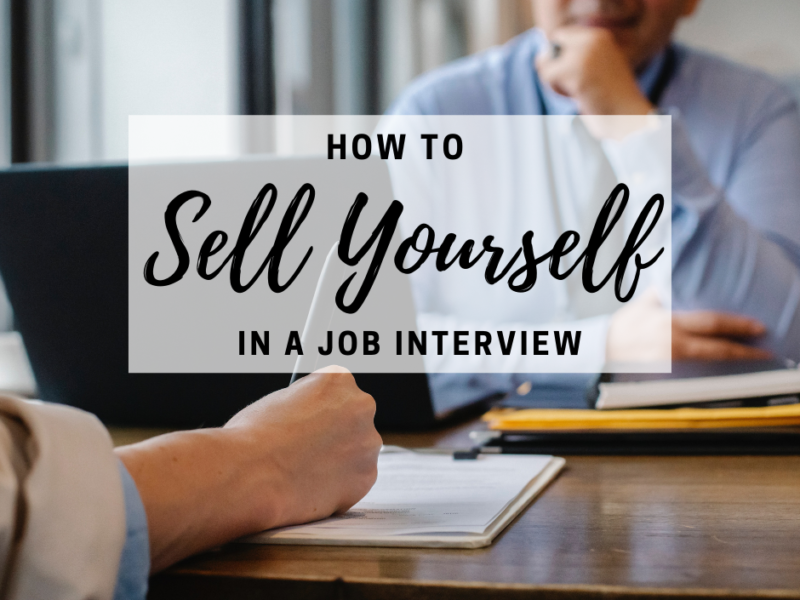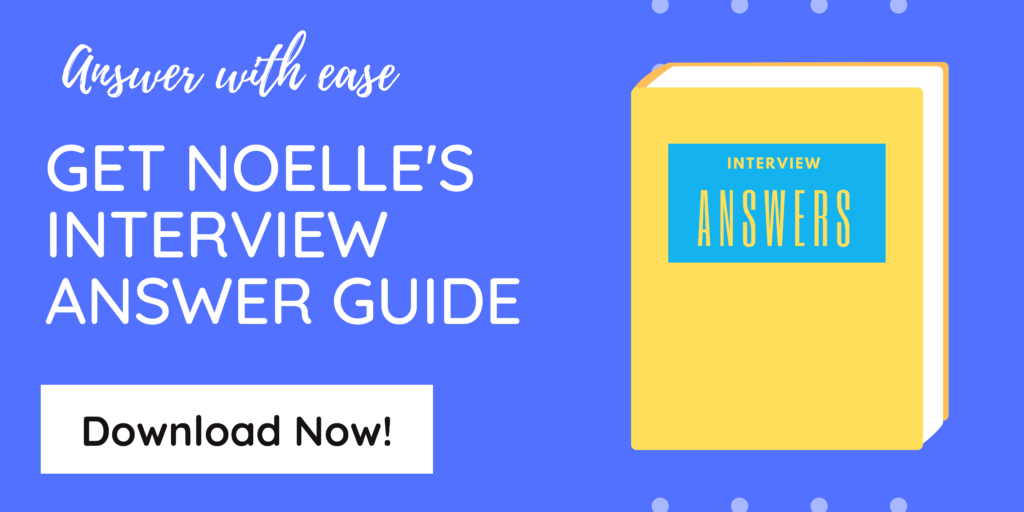During your job interview, the interviewer will need to know that you are the best person for the job. But what if you aren’t comfortable with self-promotion? How can you sell yourself as the best candidate, when bragging isn’t your thing? In this post we’ll explain the difference between boasting and strategic selling, and how to share your best accomplishments so you can position yourself as the best candidate for the job.
Why self promotion is important in a competitive job market
No one likes a bragger. In fact humility is a trait often linked to successful leaders. So how does one strike the right balance between humility and self-promotion in an interview setting? Because the job market is competitive, it’s important you let your interviewer know about all of your best accomplishments. The hiring manager WANTS to know about your accomplishments. Without a candidate’s accomplishments the hiring manager won’t be able to justify the hire. In other words, if you don’t toot your own horn, another candidate will toot theirs, and likely, land the job. So no matter what, it’s your job to talk yourself up in the interview (because no one else will do it for you).
Get inside the hiring manager’s head as a way to gauge the appropriate level of self promotion
So how much self promotion is necessary and how to approach it? Start by putting yourself in the interviewer’s shoes. (By the way this is the strategy you want to use throughout the application and interview process – anticipating the hiring manager’s needs). Yes, the interviewer is going to be looking for a total superstar when it comes to their next hire. So it goes without saying that the interviewer needs to hear about how you are that rockstar. However, on the flip side, the interviewer definitely isn’t looking to hire a know-it-all, ego-maniac. The best strategy is to strike a balance between superstar and humble/grateful individual.
How to strike the right balance
Striking this balance can be tricky. So how do you do it? To strike the right balance, you’ll need to master a blend of both. The best way to do this is by writing down your answers and then practicing. The more you practice your answers and balance, the more comfortable you will become in the live interview setting. Here care some tips for achieving this approach:
1. Embrace an attitude of humility on and off the job
Humility is a great character trait to develop. It’s important to be humble and come from a place of humility when selling your accomplishments. If you aren’t sure whether or not you can do this, the job search will certainly help. Usually when we are searching for jobs, we tend to lose our confidence. This can also harm our interview abilities because without confidence, we can’t sell our skills in a convincing way. In fact, interviewers can pick up on lack of confidence almost immediately. That’s why a little mental preparation can go a long way in the interview setting.
One of the strategies I offer my clients who are lacking in confidence is that of “changing the way they look at things,” to borrow the quote from Dr. Wayne Dyer. When we change the way we look at things we can see things in a new light. In order to make this relevant to humility, start to think of your low confidence as an opportunity to practice humility. Yes, you lost your job. Yes, you may feel useless or that no one wants to hire you. But those are just thoughts in your head. They are not the truth. The right hiring manager will hire you at the right time. All you need to do is keep presenting yourself to hiring managers in the right way! Some of my clients find that spending time exploring their strengths is exactly what they need to boost their confidence. All of this works to transform your attitude into one of humility. Embrace the truth that you got knocked down. As a result, you will have an even greater gratitude and appreciation for the right opportunity!
2. Focus on answering only what is asked
No one likes a rambler, especially not interviewers. Your interviewer has a very specific set of questions they need answered in a short amount of time. Rambling can also be problematic in an interview in terms of trying to avoid tipping the scale from self-promotion to bragging. Once you start to ramble there’s no telling where you’ll take the conversation and how that will be perceived! Therefore, you want to avoid rambling on and on about your strengths, while simultaneously jamming a zillion overused cliches into every answer.
The best way to stay on track when answering the interviewer, is by sticking to the question at hand. And the best way to stick to the question at hand, is by practicing. Similar to tip #1, create an interview script and then practice, practice, practice. You will need to get your answers down to crisp, coherent soundbites. Practicing is the only way to achieve this. This may sound like a ton of work but you will benefit by being able to control just the right amount of self-promotion and also stick to the interviewer’s agenda. If you need suggestions for how to practice, you might like this blog post I wrote on my favorite interview resources. Heads up some of my favorite resources were created by me as a way to improve upon the resources I wasn’t able to find online.
3. Answer questions by telling strategic stories
One way to increase your self-promotion comfort level is by conveying your results in the form of a story. Stories speak volumes with hiring managers because they are real-world proof that you are familiar with the subject matter (skill, task, responsibility, etc.). Here is an example of how stories work: Instead of saying, “I’m a great leader,” talk about the time you led by example and achieved great results with your peers or direct reports. It will sound natural and you will feel natural saying it. This will make for a much more authentic and conversational interview. If you’re not skilled in storytelling, I recommend using the Behavioral Interview STAR formula for answering questions. In order to help people tell concise STAR-templated stories, I created this Behavioral Interview spreadsheet that contains over 100 potential interview questions across 11 skills categories, and a structured answer section to ensure all STAR components are addressed!
4. Use keywords to reinforce your desirable skills and qualities
As you are sharing your great results-oriented stories, you don’t want to forget about highlighting your most valuable and relevant skills! This would be a missed opportunity. As you craft your stories, be sure not to overlook mention of your skills keywords. This will allow you to share your relevant skills and results in a conversational way that is much more natural than saying “I’m really good at xyz skill.” My Behavioral Interview STAR spreadsheet is also great for this as it covers 11 of the top skills sought by employers.
5. Finish your stories by sharing the results
“Results” is always the name of the game. If you can produce results, they want to hear it all day long. Interviewers love candidates who articulate their accomplishments in terms of “results” because great results achieved in the past will likely be achieved again in the future (for your interviewer)! Bragging will go almost undetected when you speak results as long as you keep the results relevant to the question. The key here is to slip the results into your stories. The best way to do this is by stating at the end of your story: “As a result, I was able to reduce clutter by 25% over the course of 3 years.” Once the interviewer hears the exact words “as a result” they tend to tune back in with interest.



 10 Job Seeker Opportunities – Jobvite’s 2021 Recruiter Survey Report
10 Job Seeker Opportunities – Jobvite’s 2021 Recruiter Survey Report


